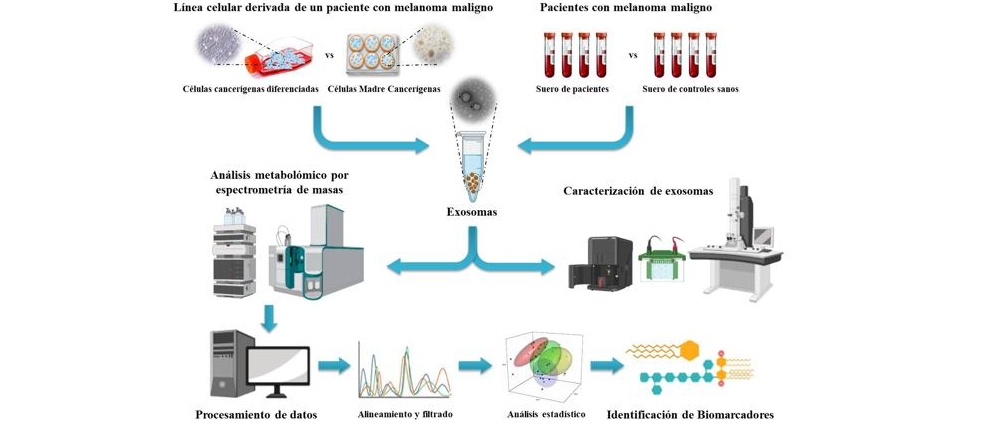Melanoma is a type of skin cancer that originates when melanocytes (the cells that give skin its tan or brown color) begin to grow out of control. Melanoma is much less common than other types of skin cancers. But melanoma is more dangerous because it is much more likely to spread to other parts of the body if not discovered and treated early.
Currently, the diagnosis of malignant melanoma remains a hurdle due to the lack of biomarkers, which enable early and accurate detection of this disease, as well as predicting disease progression.
For this reason, Fundación MEDINA in collaboration with a team of scientists led by Juan Antonio Marchal Corrales, Professor of the Department of Human Anatomy and Embryology at the University of Granada, has focused on the metabolomic analysis of exosomes by mass spectrometry, which has led to the conclusion that some metabolites of lipid nature are differentially expressed in exosomes of cancer stem cells and differentiated tumor cells.
These results represent an alternative for the discovery of biomarkers of malignant melanoma to improve early diagnosis, prognosis and prediction of response to treatment. Moreover, these results are extrapolable to many other tumors, for the search of biomarkers that help us to better understand the pathogenesis of these diseases and to achieve personalized precision medicine.
Bibliographic reference:
Palacios-Ferrer JL, García-Ortega MB, Gallardo-Gómez M, García MÁ, Díaz C, Boulaiz H, Valdivia J, Jurado JM, Almazán-Fernández FM, Arias-Santiago S, Amezcua V, Peinado H, Vicente F, Pérez Del Palacio J, Marchal JA. Metabolomic profile of cancer stem cell-derived exosomes from patients with malignant melanoma. Mol Oncol. 2021 Feb 05, 15(2), 407-428.. doi: 10.1002/1878-0261.12823. PMID: 33052601






